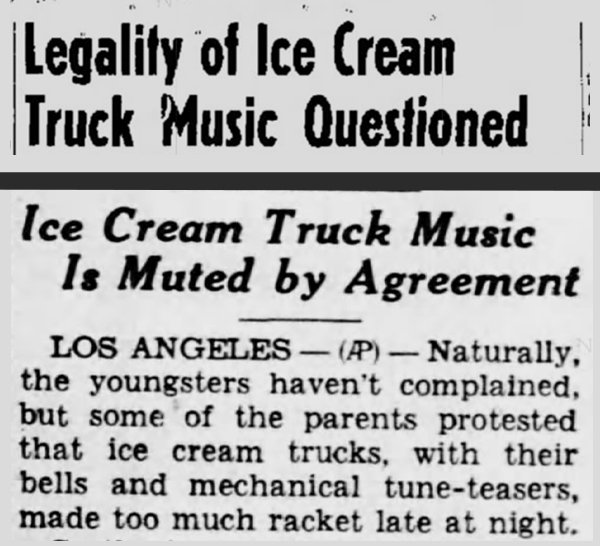Spotify Shuts Out SongShift → SongShift is a popular iOS app that allows the transferring of playlists across platforms. That is, if you use Apple Music (like me) and want to grab one of Joe Muggs’ Spotify-only Soft Music For Hard Times playlists, SongShift makes it happen. Now it seems Spotify is pouring the jerk sauce on this recipe, as the SongShift team recently made this announcement: “The Spotify Developer Platform Team reached out and let us know we’d need to remove transferring from their service to a competing music service or have our API access revoked due to TOS violation … as of SongShift v5.1.2, you will no longer be able to create transfers from Spotify to another music service.”
I guess one can understand the rationale. Spotify’s strength and differentiator, as far as music listening goes, is its playlists. If you’re into Spotify-only playlists, transferring them to your streaming place of choice might keep you from committing to their platform. Transferability makes it easier to leave the Spotify ecosystem, too. But it still comes off as a weaselly power move, especially as all other services allow these transfers (for now — this decision could set the tone).
Spotify is a public critic of Apple’s walled garden, and Jason Snell points out this hypocrisy on his Six Colors blog:
Spotify hates how Apple tends its own ecosystem, but it has zero interest in allowing its customers to migrate metadata in any way that might make it more convenient to leave Spotify behind. That’s their decision to make, of course, but for a company that claims to support consumer freedom, it has just made a hypocritical decision designed to reduce the freedom of its own customers.
One can argue about ownership of playlists, but the music is not the property of Spotify or anyone else besides the rights-holders. And I’m sure rights-holders would prefer the containers for their music remain fungible across applicable services.
But what are you gonna do? I suppose if you use SongShift, maybe don’t update to the latest version (though I don’t know for sure if that will make a difference). And transfer those Spotify playlists as soon as you can, even if you use something other than SongShift. I’m sure Spotify will quickly put the kibosh on those other services, too.
Update: Spotify has done an about-face. Adds SongShift: “The only caveat is, you have to have created the playlist yourself, or the playlist must be collaborative and followed by you.”
——————
The Company That Has a Monopoly on Ice Cream Truck Music → The origins of the music boxes playing from ice cream trucks are fascinating. Today’s familiar sound was once in a heated competition with sleigh-bells (“ringing a bell all day long soon proved to be too manually taxing for drivers”) and resistance from older generations complaining about the noise (little did they know).

Nichols Electronics persevered and still delivers 300-400 music boxes a year. That seems low, but the company — which has provided these boxes for several decades — is comfortable with its niche’ monopoly.’ Nichols Electronics is a lesson for labels and artists — find your audience, serve only them, and prosper with consistency despite limited opportunities for growth.
I also like the strategic rules that Nichols Electronics sets for songs included in their music boxes:
• They’re short and easy to remember … the perfect length at between 15 and 45 seconds.
• They’re structurally simple: “You don’t want the music to be very full,” music historian Daniel T. Neely tells us. “If it’s too complicated, the message becomes kind of muddled.”
• They’re typically rooted in nostalgia.
As the article explains, “That last point is perhaps the most crucial element of a good ice cream truck song: We’re drawn to these melodies because we’ve heard them before.” It also helps when the ‘nostalgic’ song is in the public domain and doesn’t require licensing fees. That aspect might be a problem for the heavy metal ice cream truck.
——————
Yoshiaki Ochi – Natural Sonic → Today, I randomly happened across a lovely percussive ambient album from composer Yoshiaki Ochi. Light On The Attic’s Kankyō Ongaku compilation featured this Japanese artist, as did Music For Dreams’ Japanese music collection Oto No Wa. Natural Sonic calms with tropical sounding wooden percussion, floating between the tribal, the distant, and the contemporary. In my interview with Elijah Knutsen, an enthusiast of Japanese ambient music, he describes how the Kankyō Ongaku genre often features the “natural sound of life, with bits of melody blended between the long stretches of environmental sounds.” Natural Sonic includes these elements on a few of the songs — beach surf on “Woods from the Sea,” or bird sounds on “Anywhere.” But the lack of synthesizers draws Ochi’s album closer to the likes of Martin Denny (except the bird sounds here are real) than the pioneers of Asian ambient music. And, interestingly, the organic materials that populate the album result in a timelessness. Natural Sonic was recorded in 1990, a fact I had to look up as listening gave no easy clues to its year of origin.